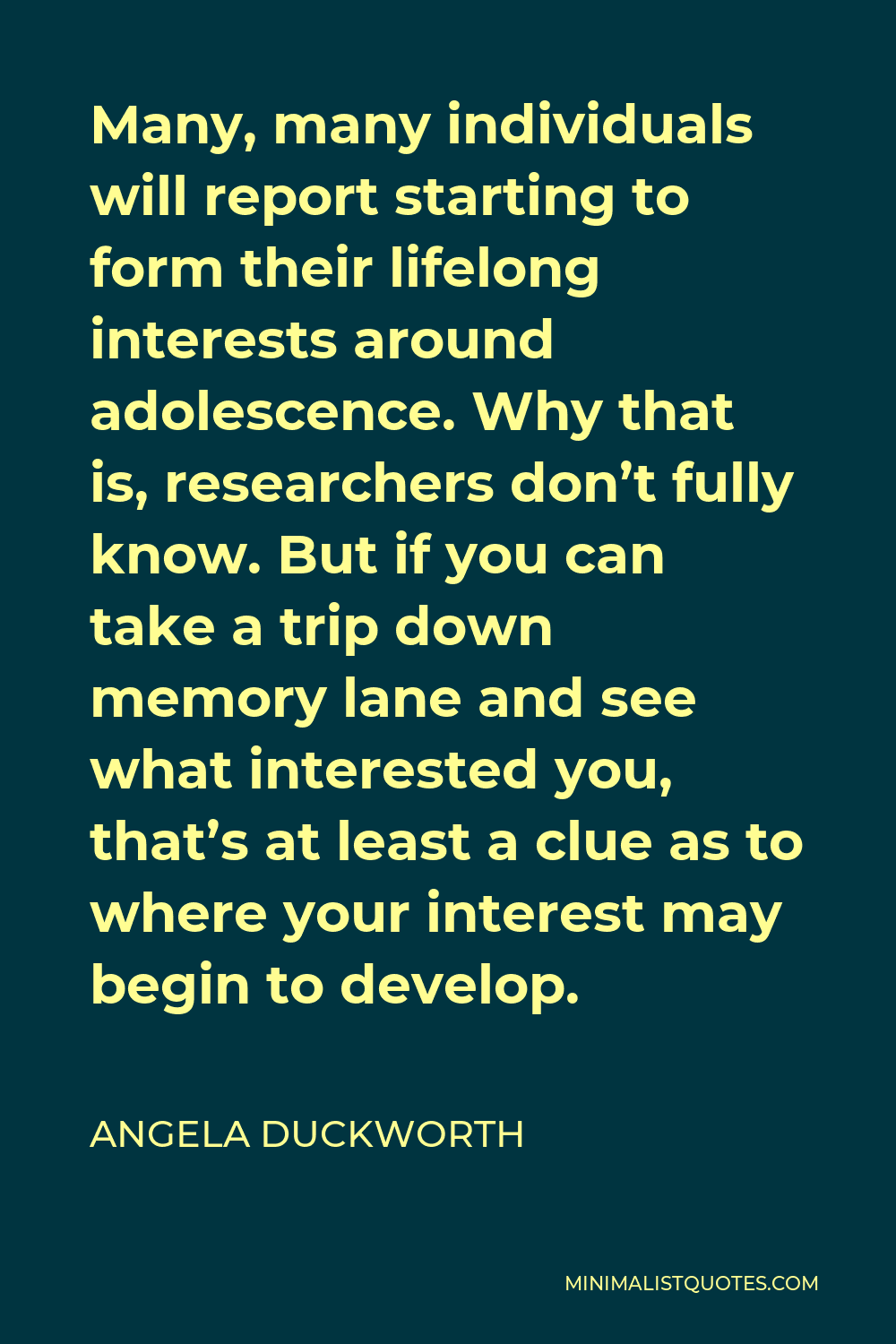I will say that if my wildest dreams come true, I will, like, wake up one day, and I will be Carol Dweck, right? Because she is like everything I want to be.
ANGELA DUCKWORTHMany, many individuals will report starting to form their lifelong interests around adolescence. Why that is, researchers don’t fully know. But if you can take a trip down memory lane and see what interested you, that’s at least a clue as to where your interest may begin to develop.
More Angela Duckworth Quotes
-







-







The words that we use I think are symbolic of the values that we hold.
ANGELA DUCKWORTH -





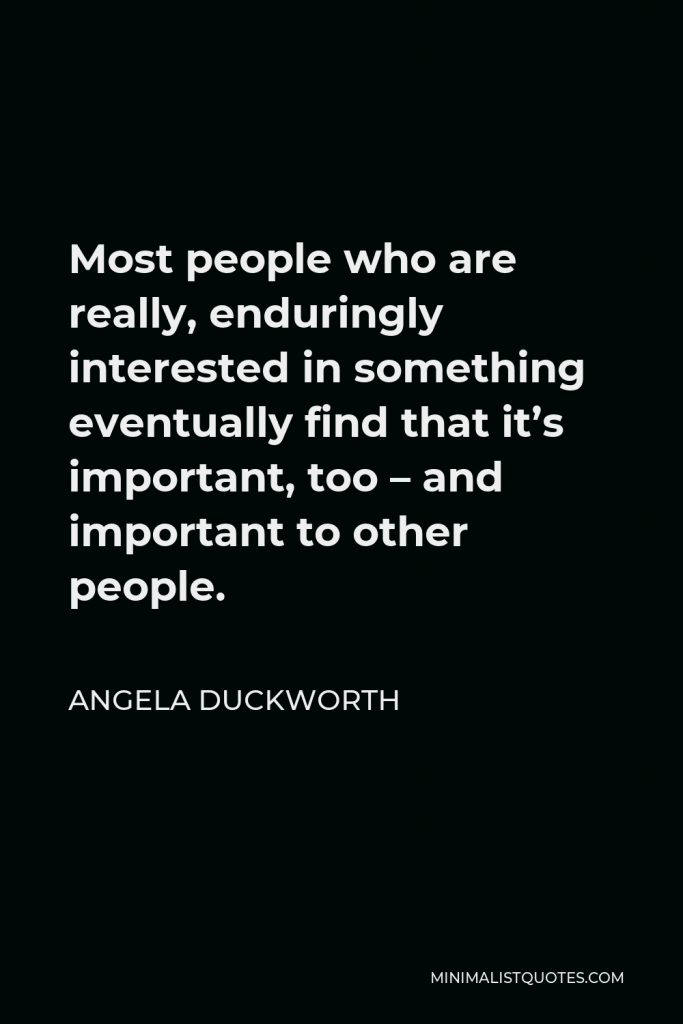

Most people who are really, enduringly interested in something eventually find that it’s important, too – and important to other people.
ANGELA DUCKWORTH -





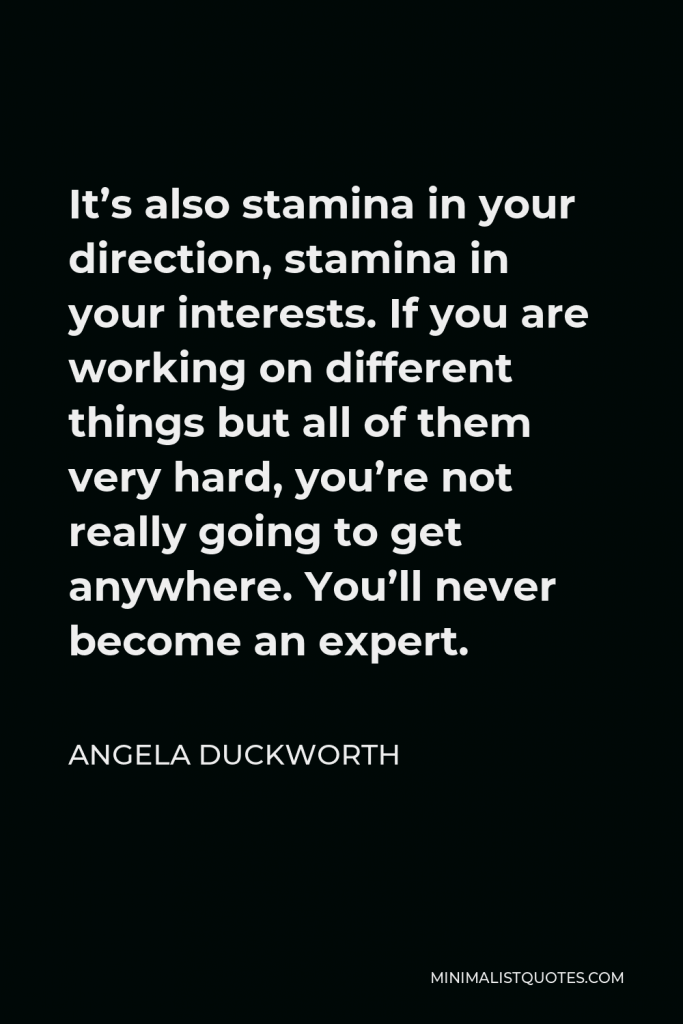

It’s also stamina in your direction, stamina in your interests. If you are working on different things but all of them very hard, you’re not really going to get anywhere. You’ll never become an expert.
ANGELA DUCKWORTH -





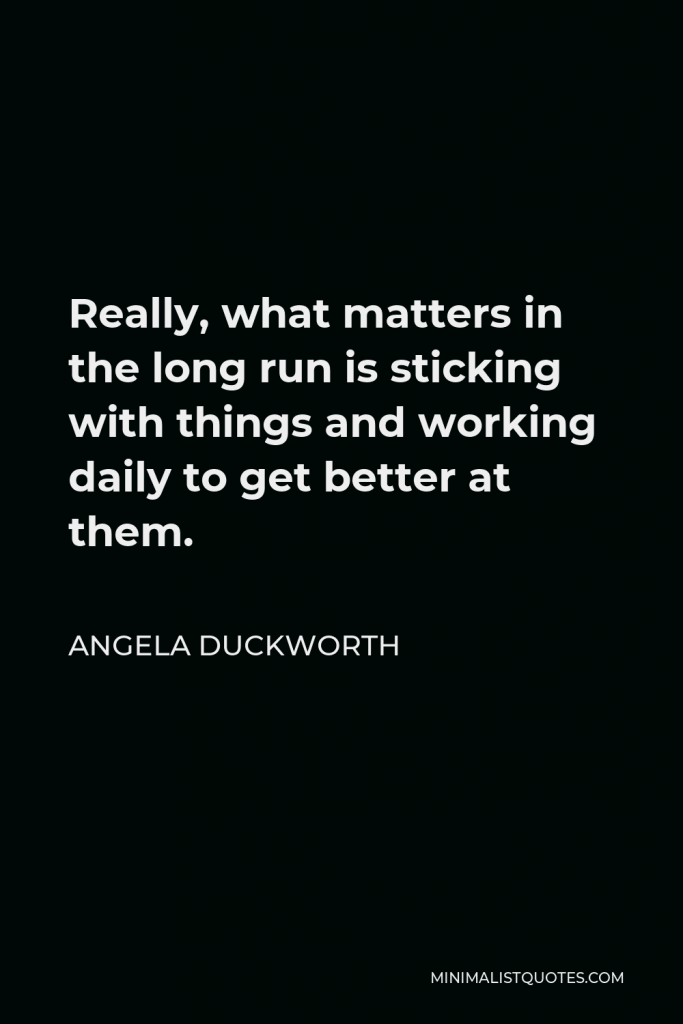

Really, what matters in the long run is sticking with things and working daily to get better at them.
ANGELA DUCKWORTH -





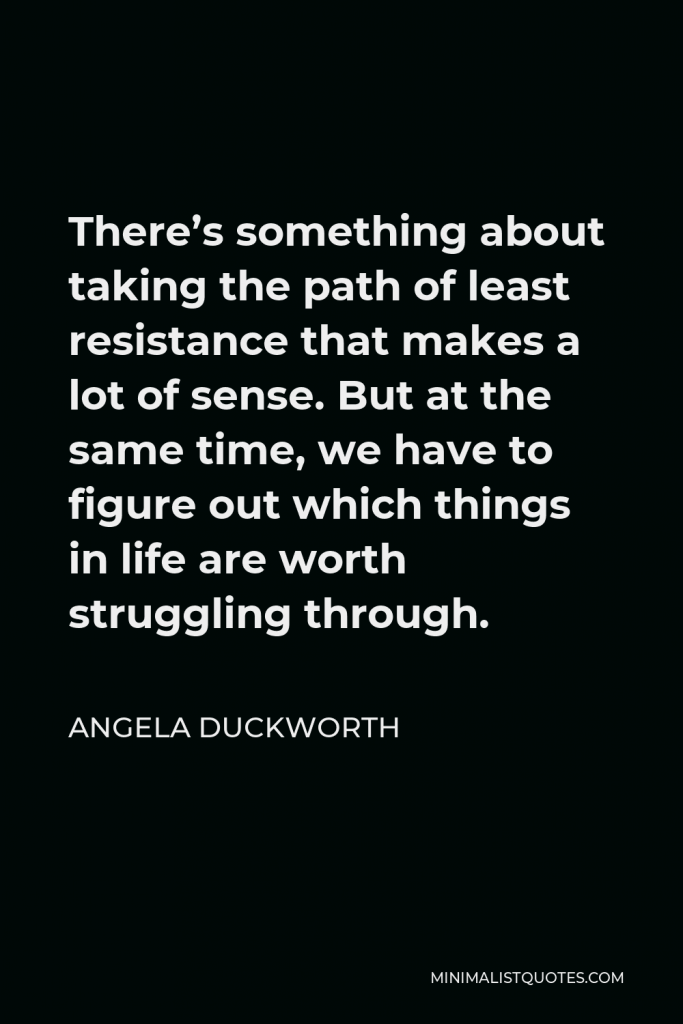

There’s something about taking the path of least resistance that makes a lot of sense. But at the same time, we have to figure out which things in life are worth struggling through.
ANGELA DUCKWORTH -





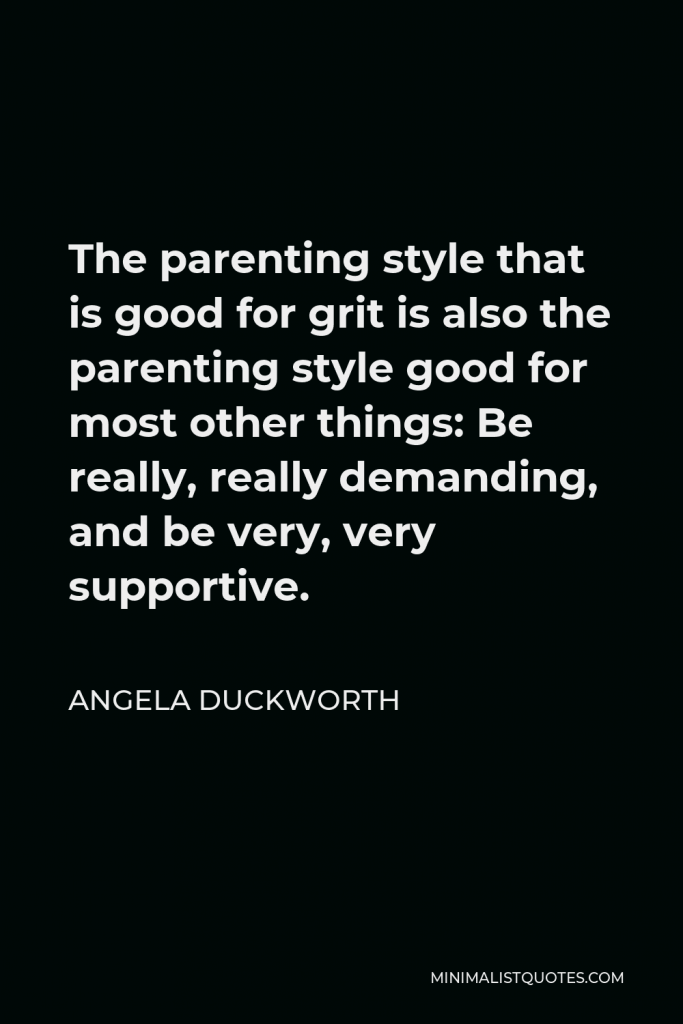

The parenting style that is good for grit is also the parenting style good for most other things: Be really, really demanding, and be very, very supportive.
ANGELA DUCKWORTH -





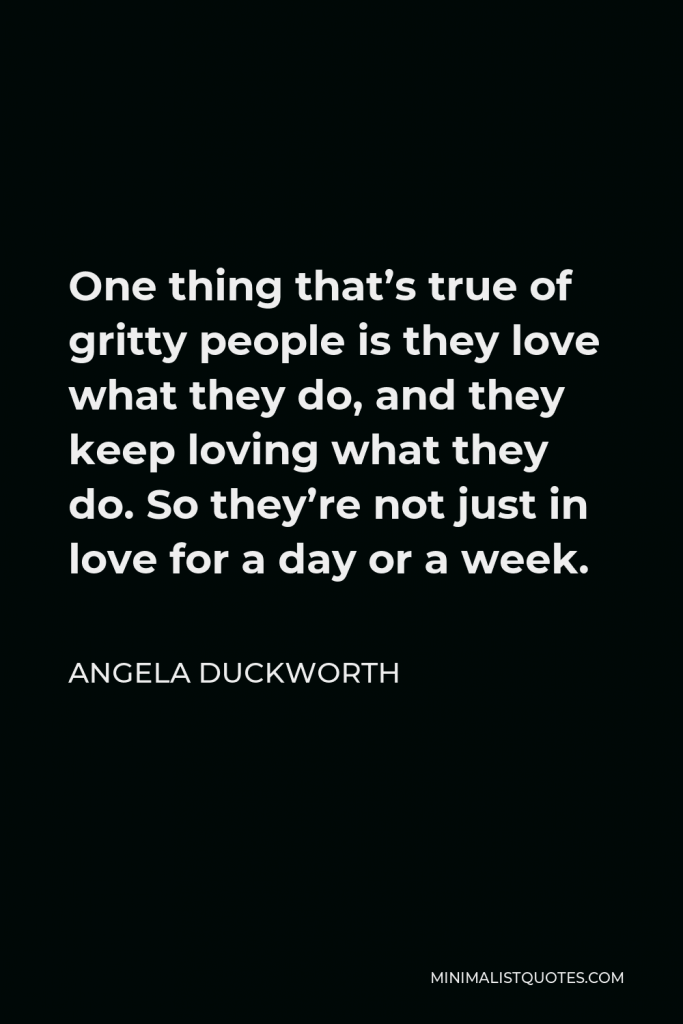

One thing that’s true of gritty people is they love what they do, and they keep loving what they do. So they’re not just in love for a day or a week.
ANGELA DUCKWORTH -





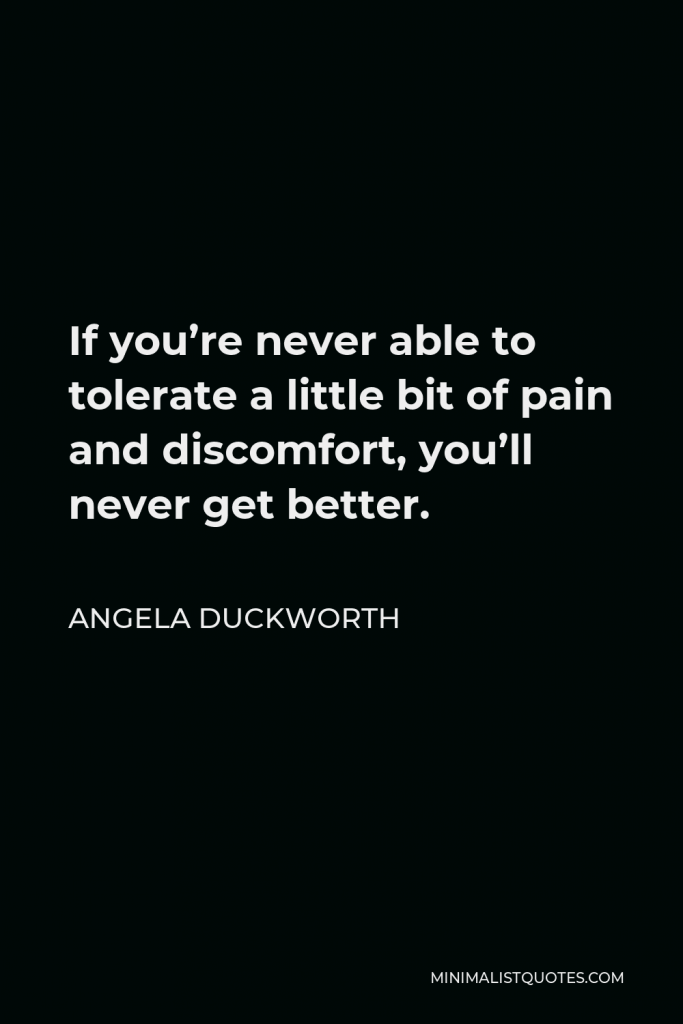

If you’re never able to tolerate a little bit of pain and discomfort, you’ll never get better.
ANGELA DUCKWORTH -





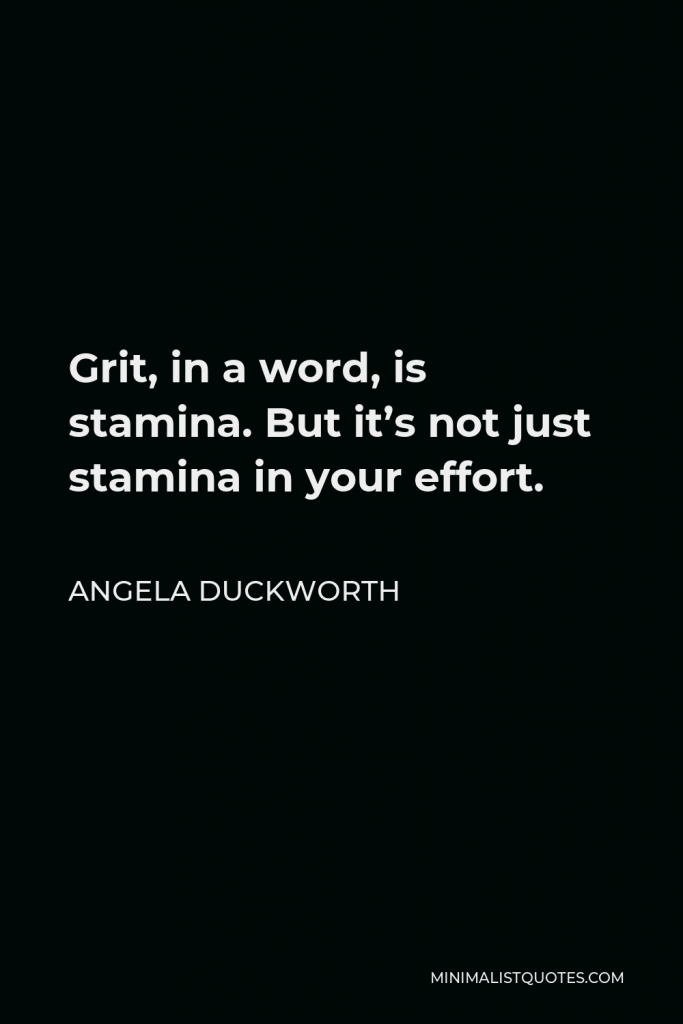

Grit, in a word, is stamina. But it’s not just stamina in your effort.
ANGELA DUCKWORTH -





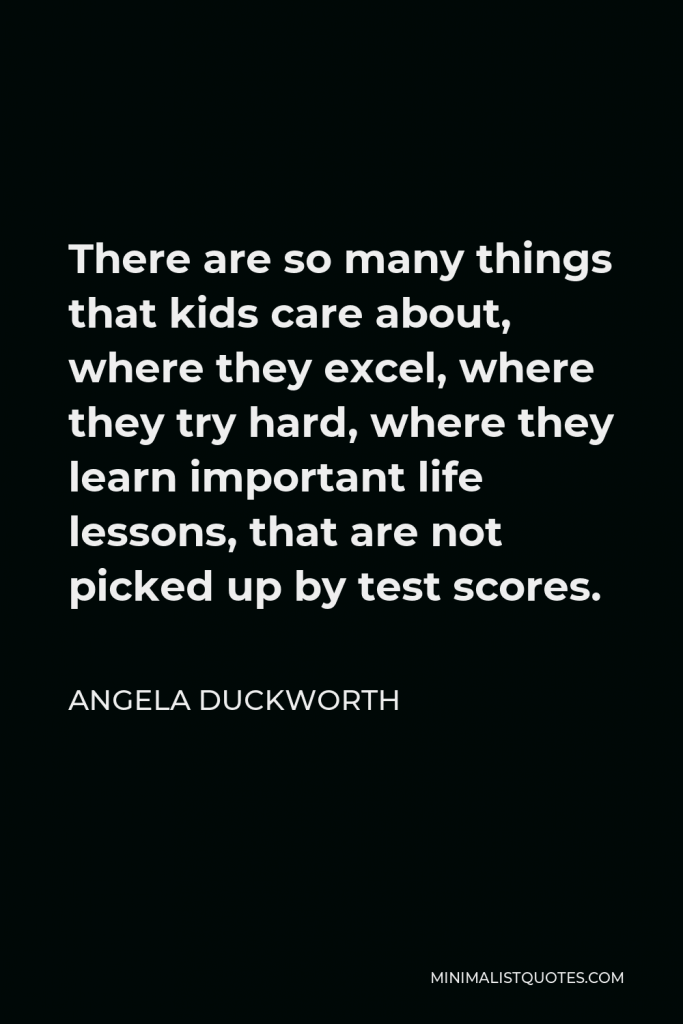

There are so many things that kids care about, where they excel, where they try hard, where they learn important life lessons, that are not picked up by test scores.
ANGELA DUCKWORTH -







I know a lot of CEOs who are looking for three- to four-year varsity athletes – not necessarily because these people are going to be doing pushups or spiking volleyballs in the workplace, but because they’re looking for that continuity, that person who was gritty about something.
ANGELA DUCKWORTH -





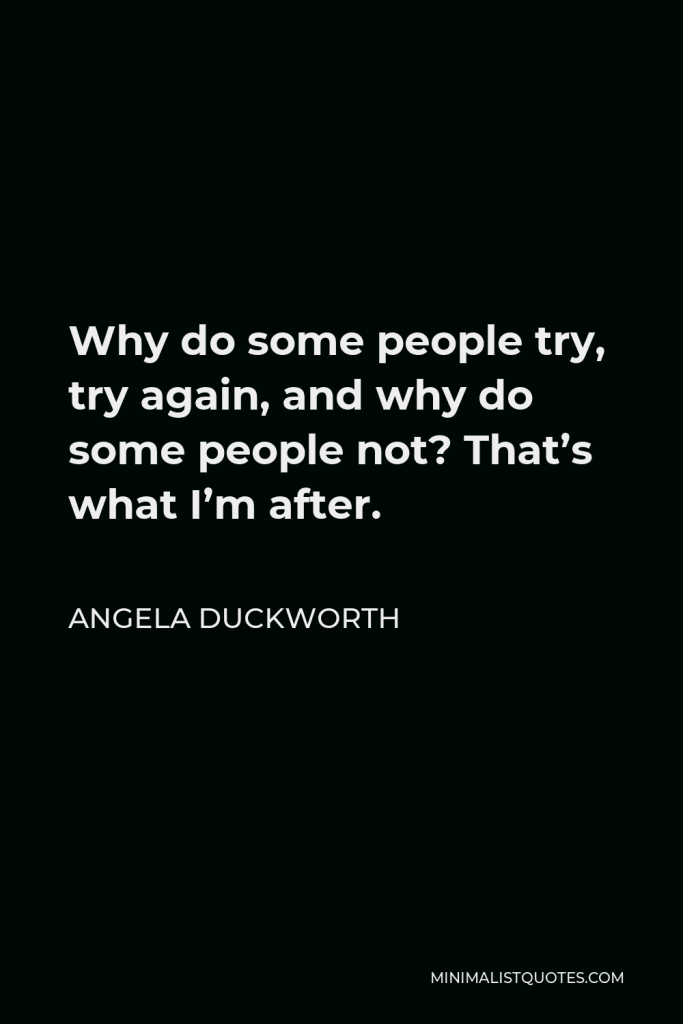

Why do some people try, try again, and why do some people not? That’s what I’m after.
ANGELA DUCKWORTH -





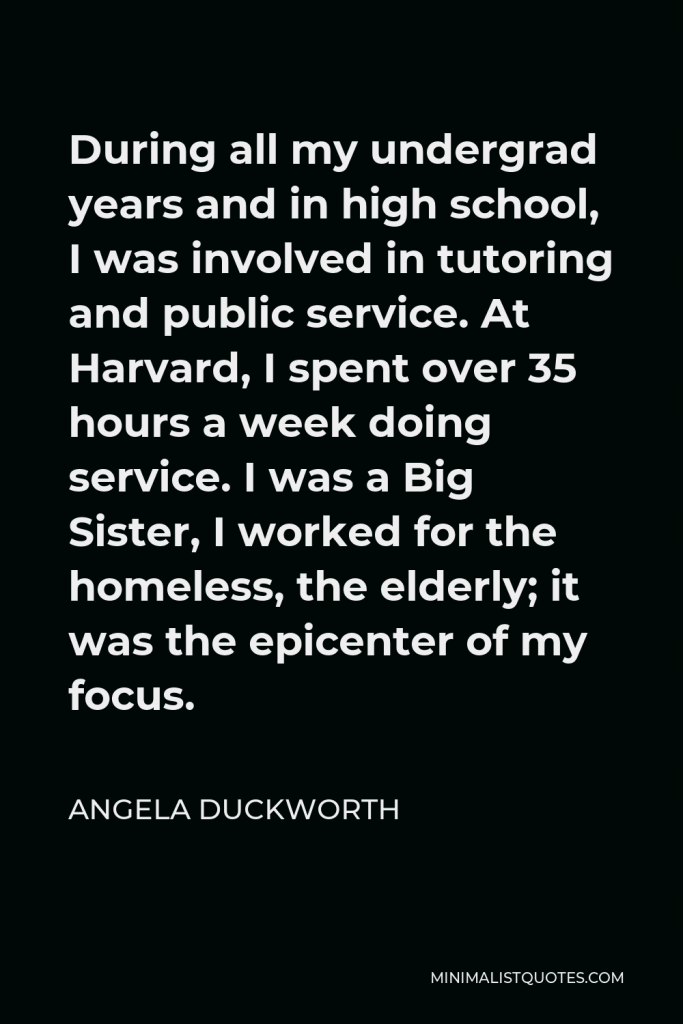

During all my undergrad years and in high school, I was involved in tutoring and public service. At Harvard, I spent over 35 hours a week doing service. I was a Big Sister, I worked for the homeless, the elderly; it was the epicenter of my focus.
ANGELA DUCKWORTH -





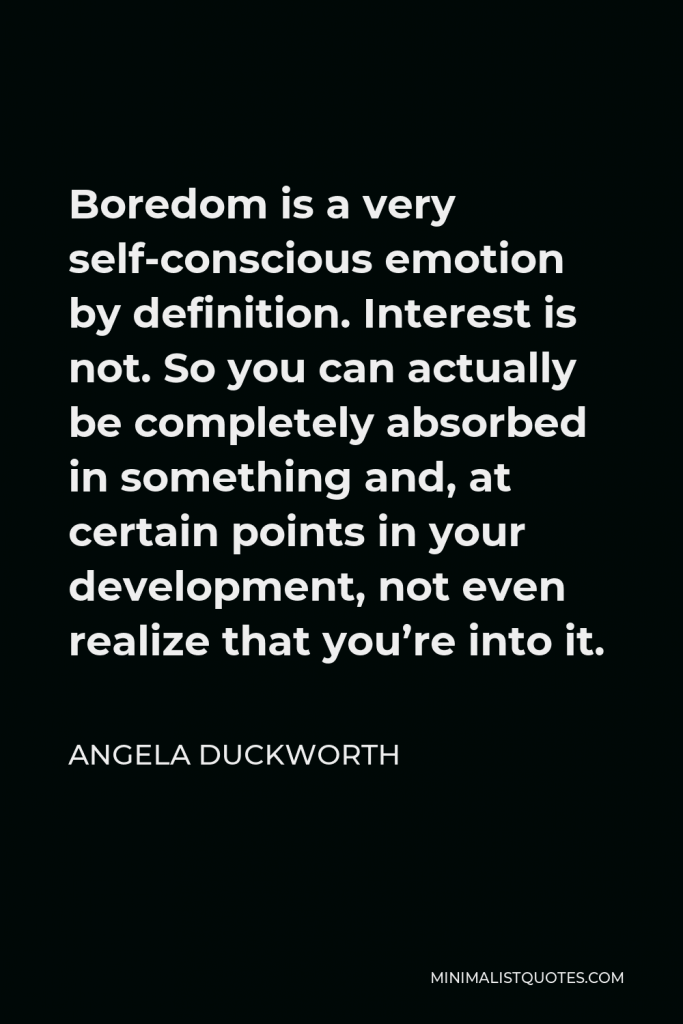

Boredom is a very self-conscious emotion by definition. Interest is not. So you can actually be completely absorbed in something and, at certain points in your development, not even realize that you’re into it.
ANGELA DUCKWORTH -





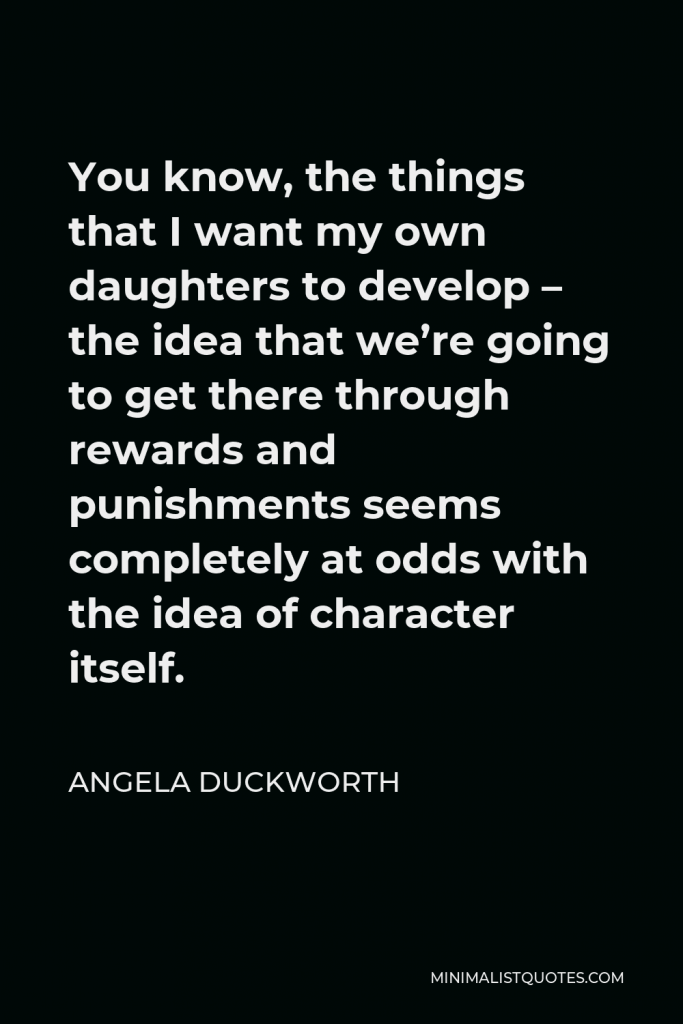

You know, the things that I want my own daughters to develop – the idea that we’re going to get there through rewards and punishments seems completely at odds with the idea of character itself.
ANGELA DUCKWORTH

